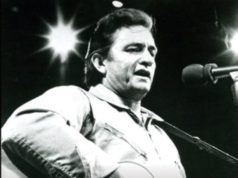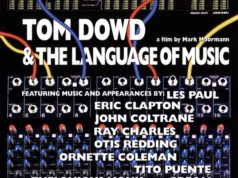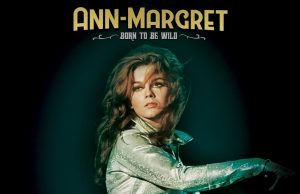Two decades ago, new albums from Pearl Jam, Britney Spears, Phish, Veruca Salt and others were spinning away in my portable CD player. Here’s what I had to say about them back then (with some minor editing):
 Pearl Jam
Pearl Jam
Binaural
For the last few years, Pearl Jam have been a better band in theory than in reality. And there’s no shame in that. Let’s face it, when most folks only talk the talk, Eddie Vedder and co. have no problem walking the walk. In a business fuelled by worldwide fame, they have continued to retain their everyman grounding. In a world addicted to mass media, they have refused to make videos. In an age of cross-promotion and corporate synergy, they have tilted at the windmills of monopolistic ticket agencies. While everyone is worried about their mutual funds, they’re worried about our collective existence. And you have to applaud them for it.
Too bad the one thing they haven’t been able to manage lately is to make a truly killer album. Oh sure, their last few discs — 1996’s experimental Code, 1998’s rockier Yield and the energetic Live on Two Legs collection — definitely had their moments. But honestly, how often do you listen to them? And how many of those tracks are going to go down next to Even Flow and Better Man? Not many. It may not be an accident that PJ’s last hit was their moody remake of the classic ’60s teen ballad Last Kiss.
Not surprisingly, their sixth studio album Binaural — the first with new drummer Matt Cameron, formerly of Soundgarden — isn’t exactly a calculated move to storm the pop charts. Once again, the lads have their eyes on more important issues — life and death, destiny and free will, materialism and spirituality and God’s role in the universe. Yep, from the nebulae pictured on the CD cover and throughout the booklet to the homage to The Who’s I Can See For Miles that kick-starts opening track Breakerfall, Binaural is all about looking at the big, cosmic picture. Heavy.
Unfortunately, the musical content doesn’t always have the same heft as its lyrics. While the band comes out swinging on the opening three tracks — the propulsive guitar-rock Breakerfall and Gods’ Dice, plus the edgy new-wave paranoia of Evacuation — guitarists Stone Gossard and Mike McCready, bassist Jeff Ament and skinman Cameron quickly drift into a more sombre, spacy midtempo groove that carries them through most of this 13-track affair’s 50-minute running time. Few of the tunes are exceptional; even fewer have choruses or refrains that leap out at you or stick right away. At times, even Vedder seems to realize he’s taking things too seriously — “too much thought, it’s overwrought” he sings at one point — but he seems as helpless to do anything about it as the corporate drone of Sleight of Hand, for whom “routine was the norm.”
Bottom line: On Binaural, Pearl Jam might still be better in theory than reality. Even so, having them remains far better than not.
 Britney Spears
Britney Spears
Oops! … I Did it Again
Britney Spears can’t get no satisfaction? Puh-leeze. Then again, maybe the Louisiana Lolita has a point — even if it isn’t the same one Mick Jagger was making generations ago. Lately, being the reigning queen of teen-pop may not have been all it’s cracked up to be. At 18, Britney is already the old lady of the scene. Up-and-comers like Christina Aguilera and Jessica Simpson are breathing down her bustier — not to mention stealing Grammys right from under her nose. There’s no guarantee this album — the much-anticipated followup to last year’s … Baby, One More Time — is gonna do any better than, say, the new Hanson disc. And if it doesn’t — if she doesn’t move the mega-million units of an ’N Sync or Backstreet Boys — she could find herself labelled a has-been before she turns 20.
So, maybe Britney’s cover of The Rolling Stones’ Satisfaction — a song nearly twice as old as she is — isn’t as out of place as it seems on Oops! Which is not to say that it’s good. Because it’s not. Mainly because all producer Rodney Jerkins has done is turn Mick and Keith’s timeless classic into a tacky piece of trendy teen-jack swing with all the syncopated beat boxes, punchy synth accents and bombastic, close-harmony choruses of Backstreet’s Back — a tune that is probably closer to Britney’s idea of classic rock.
Sadly, it’s also the template for more than half the tracks on this disappointingly predictable disc, including the opening title cut and first single. Most of the rest of the tunes are — you guessed it — syrupy string-cheese ballads that all sound like they were written by Diane Warren. One, When Your Eyes Say It, actually was. Amazingly, it isn’t the hokiest track. That would be Dear Diary, a dollop of pianissimo fluff in which Britney confides in her journal about her crush on a cute boy who smiled “and I thought my heart could fly.” But even that pales next to the snippets of dialogue tossed into and between songs. In one exchange, Britney’s boyfriend gives her the jeweled necklace from Titanic; in others, she chats on the phone with a girlfriend and dishes with friends about her last date. Too bad we don’t get to hear her talking about what she thinks of Christina and Jessica.
At times, Britney even seems to acknowledge the pressure she’s gotta be facing these days. First, in Lucky, she ponders the ironic loneliness of fame. Then there’s Can’t Make You Love Me, a Euro-tinged plea for affection that’s sung to a boy but could just as easily be directed at her audience. “Tell me that you want me still,” she begs. “I have been through changes, but I’m still the girl you used to know.”
So now we know: Britney might not be after the same thing Mick was talking about, but she’s desperate for satisfaction just the same. Whether she gets it or not, we’ll see.
 Phish
Phish
Farmhouse
Supposedly it’s called Farmhouse because of where it was made — eclectic jam-masters Phish recorded the album in a studio they built in a 150-year-old barn. But the title also symbolizes the musical growth displayed on this eighth studio album. Toning down some of their kookier (and arguably more annoying) musical mannerisms and reining in their propensity for anything-goes arrangements and endless, free-form jams, the band — fronted by singer-guitarist Trey Anastasio — harvests a mature crop of down-to-earth roots-rockers grounded in songcraft instead of self-indulgent musicianship. Country and bluegrass-tinged tunes such as Farmhouse, Twist and Bug, with their winsome melodies and laid-back, unsophisticated essence, may be the band’s most appealing, least-forced works yet. Whether they’ll appeal to the Phisheads who congregate to see them play the vacuum cleaner and cover Beastie Boys remains to be seen. But with Farmhouse, for the first time Phish suggest they actually might have the songwriting chops to live up to their billing as heirs to The Grateful Dead.
 Veruca Salt
Veruca Salt
Resolver
“I am not the same as before,” singer/guitarist Louise Post claims right off the bat on her band Veruca Salt’s third CD. Well, she’s sorta right. On the personnel side, she isn’t kidding. Since ’97’s Eight Arms to Hold You, the rest of the band, including co-leader and Seether songstress Nina Gordon, quit or were sacked, leaving Post uncontested leader of this reconstituted outfit. But while the faces have changed, it’s pretty much business as usual on Resolver — beginning wit the pop-culture 101 album title. These alt-rock jawbreakers still remind you of The Breeders trying to write songs for Cheap Trick — especially when Post injects lines from I Want You to Want Me in Born Entertainer. Meanwhile, the guitar lines are still big and simple as a fratboy, with a distorted sugar-crunch that falls between hair-metal and poppy post-grunge. And Post still has the voice of a schoolgirl trapped in the mouth of a sailor — some of Resolver’s lyrics could make Courtney Love blush. None of these 13 tunes is another Seether — and there are a few too many ballads for my taste — but fans will feel like they already know the new Veruca Salt.
https://youtu.be/v4xp0X3K-mk
 Tim Finn
Tim Finn
Say It Is So
If you’re wondering where singer/songwriter Tim Finn has been for the last while, the answer can be summed up in one word: Nashville. Don’t worry, though; the founder of Split Enz and erstwhile member of brother Neil’s Crowded House hasn’t traded in his pop sensibilities for a 10-gallon hat and spurs. On the sweet Say It Is So — his first solo album in seven years and first record since the ’95 Finn Brothers album — the New Zealander simply dips his toes into the pedal-steel and acoustic-guitar instrumentation and unadorned melodicism of American roots-rock. When it comes to songwriting, though, his wry wit and ear for a catchy melody haven’t changed a whit. Which makes tracks like Death of a Popular Song or Some Dumb Reason a wonderful amalgam of styles — kind of like Ray Davies jamming with Wilco, or Elvis Costello duetting with Tom Petty. Welcome back, Tim.
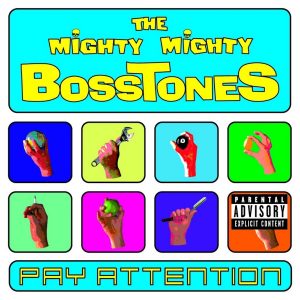 The Mighty Mighty Bosstones
The Mighty Mighty Bosstones
Pay Attention
Every party’s gotta end sometime — and for Dicky Barrett and his Mighty Mighty Bosstones, it’s 6 a.m., the women have gone and the keg is empty. After 15 years of testosterone and beer-fuelled ska-metal high jinks, Barrett and co. take a sober look in the mirror on their eighth studio album Pay Attention. And sometimes, they don’t seem to like what they see. “I’ve got real issues I must wrestle with,” admits Barrett on Let Me Be, summing up the tone of introspective, soul-searching tracks like The Skeleton Song, So Sad to Say and I Know More, which delve into topics like family, parenthood, tolerance and regret. Musically, the band aim for similar growth, amending the herky-jerky skank, barking hardcore vocals and metallic guitars with richer, more textured vibes and melodic, poppy arrangements. Sometimes, it’s a bit of a downer — you wish they would ditch the 12-step self-indulgence and return to the 2Tone crunch of oldies like Rascal King and Royal Oil. But ultimately, you’ve gotta applaud them for wising up and growing up. After all, it’s better to leave the party than get thrown out.
 The Slackers
The Slackers
Live at Ernesto’s
How’s this for world music? The Slackers are a Jamaican ska band from New York City whose sound merges traditional island blue beat with the hepped-up herky-jerk of British 2Tone. So naturally, when they decided to make a live album, they recorded at — believe it or not — a Mexican restaurant in Holland. Even stranger: It turns out to be the perfect setting. Or maybe it’s just that it doesn’t matter where this horn-fuelled octet ply their trade; their jovial, jumping jive and intoxicating, downshifted skank speaks in a universal language. So don’t question it — just put on your sombrero, pop a Heineken, heat up a goat burrito and just go with the flow.
 Dirty Three
Dirty Three
Whatever You Love, You Are
For an instrumental trio, Australia’s Dirty Three always manage to speak volumes. Their last disc, Ocean Songs, for instance, ebbed and flowed in a way that seemed to express the wonder and loneliness of life at sea. For this equally ambitious and moving followup, violinist Warren Ellis, guitarist Mick Turner and drummer Jim White deliver a half-dozen tragically exquisite portraits of starry nights and doomed romance. Ellis tugs the heartstrings, drawing mournful, melancholy melodies from his fiddle as Turner gently glides through the scene like a poltergeist and White provides the Bolero-like heartbeat to the whole sad affair. With the long, flowing progressions — these six tracks total 48 minutes — and seemingly psychic interplay, Dirty Three’s style has always defied definition and pigeonholing; it’s somewhere between free jazz and the soundtrack to a tragic gypsy opera. Whatever it is, you can’t help but love it.
 Ian Anderson
Ian Anderson
The Secret Language of Birds
Flutes. Check. Mandolins. Check. Medieval melodies, Ren fayre vibes and prog-rock lyrics. Check, check and check. Yup, it’s an Ian Anderson album all right. This third solo set from the longtime Jethro Tull leader comes less than a year after his band’s last offering — which, given the group’s constantly changing roster, was pretty much a solo Anderson album anyway. So give him points for productivity. But remember that quantity is not necessarily quality. The home-recorded Secret Language of Birds is a fairly bland affair that rarely soars, preferring to glide aimlessly on currents of gentle folk-rock over a landscape of FM lite backing tracks. Call it Jethro Dull.
 Fontanelle
Fontanelle
Fontanelle
Sometimes, it’s not what you play or how you play it — it’s who plays it and where. Case in point: This debut disc from instrumental Yankee four-piece Fontanelle. If this were the work of four German guys with spiky haircuts and black trenchcoats (and it easily could be), these six tracks of jammy post-psychedelia would probably be filed in the Krautrock section of the CD store, just down from Can. If, on the other hand, these wandering, improvised progressions and lightly funky grooves were being tossed off by four downtown New York jazzbos (and they just as easily could be), this sucker would be sitting in the jazz rack a little past Miles Davis. Since Fontanelle are actually from Portland, Ore., however, that presumably means this will be in the indie-rock bunk along with Tortoise. Frankly, they’d be equally at home in any spot. My advice: Buy it and decide for yourself.
 Console
Console
Rocket in the Pocket
German techno-pop knob-twiddler extraordinaire Console is also known as Martin Gretschmann, formerly of electro-punk outfit Notwist. On his new solo CD Rocket in the Pocket, he offers up a new twist: Freewheeling futurist funk. Using the sparsest of synthesized melodies, augmented by randomly bleeping and buzzing keyboards, stream-of-consciousness arrangements, robot vocals and skeletal backbeats, Gretschmann makes like Dr. Frankenstein — or perhaps Dr. Funkenstein — by stitching the whole monstrosity together with seamless technique and well-placed injections of loops and samples. Does the electro-pop beast live? And then some: On tracks like Pigeon Party and single 14 Zero Zero, it positively grooves, shucking and jiving with a head-nodding vibe and light-industrial sheen perfect for the chillout room at the robot factory. Techno may not be brain surgery, but in Gretschmann’s capable hands, it sure sounds like rocket science.
 Billy Joel
Billy Joel
2000 Years: The Millennium Concert
You know, frankly, if, after 2000 years of evolution and progress, the best idea we could come up with to mark the dawn of the third millennium was to get a pudgy, bearded curmudgeon to recreate decades-old cheese-rock and Broadway piano-pop about angry young men, Allentown, big shots, and how it’s still rock ’n’ roll to him — whatever the hell it is — then maybe it would have been better if that Y2K bug actually had caused global meltdown. At least then we wouldn’t have to listen to Billy Joel cover Honky Tonk Women and Dance to the Music like some overblown wedding singer for a crowd who probably got loaded so they could forget wasting hundreds of dollars on tickets to this pointless exercise.
 Whitney Houston
Whitney Houston
Greatest Hits
Insert your own Whitney/drug hits/greatest hits/Houston, she has a problem joke here. (I’ll take a pass; some things are just too easy, y’know?) But even though the diva’s personal life is in tabloid tatters, you can’t dispute her professional reputation as a remarkably voiced hit machine. That seems to be the point of this two-CD, 35-song collection, which features one disc of Whitney’s love-obsessed ballads (You Give Good Love, Greatest Love of All, My Love is Your Love, I Will Always Love You) and a second CD of poppier fare (I’m Your Baby Tonight, I Wanna Dance With Somebody, How Will I Know), remixed for today’s dance floors. To show she’s still in good voice, there are four new tracks: soulful duets with Deborah Cox and Enrique Iglesias, a groovy pop teaming with George Michael and Fine, a solo slice of funky R&B. Between the oldies and those goodies, Greatest Hits has every Houston song you need — and then some, like her infamously acrobatic rendition of The Star Spangled Banner that closes the set. Talk about going out on a high note. (Damn. Sorry, couldn’t help myself.)
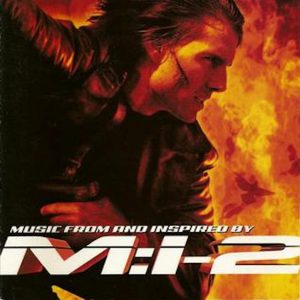 Mission: Impossible 2
Mission: Impossible 2
Various Artists
Q: In which John Woo movie does a guy in a black trenchcoat and sunglasses pull out a pair of nickel-plated .45 automatics and start blazing away with both barrels while flying through the air? A: All of them (not that there’s anything wrong with that). And this magnum-strength soundtrack to Woo’s upcoming Mission: Impossible sequel is pretty much the audio equivalent of that piece of stock Woo footage. Limp Bizkit kick things off with a muscular rap-core reworking of M:I’s classic, noirish theme, setting the pace for more than a dozen high-velocity original tracks from high-calibre acts such as Rob Zombie (the pummelling cartoon-metal of Scum of the Earth), Chris Cornell (Mission 2000, the closest thing to a Soundgarden track he’s recorded), Foo Fighters and Brian May (who crank up Pink Floyd’s Have a Cigar into a churning post-grunge maelstrom) and Metallica (whose bruising stomper I Disappear was leaked to the Internet, spurring their battle with Napster). Beyond these heavyweights, there are a few too many second-rate tracks from second-rate acts (Diffuser? Tinfed?). Still, it’s impossible not to get a kick out of this CD.
 Kathie Lee Gifford
Kathie Lee Gifford
Born For You
Let’s see if I’ve got this straight: Kathie Lee Gifford is giving up her day job to protect her children and her family from the evil media. So how does she display this newfound desire for privacy? Well, she’s co-starred in a TV-movie with her son, sued The National Enquirer on his behalf and been probed by Barbara Walters about her and hubby Frank Gifford’s floozy-fostered marital meltdown. Then, just to keep things really quiet, she’s issued an album of Streisand-style piano balladry to express their renewed devotion. She’s penned a tune about how she cried in her pillow after Frank fondled that flight attendant. She’s stuffed the CD full of pictures of her, Frank and the kids — and even a multi-media section so you can see Cody on your computer. Who’s she modelling her retirement after? Celine Dion? Hey Kathie Lee, if you really want the media to leave you alone, here’s how — shut the hell up and go away.




















